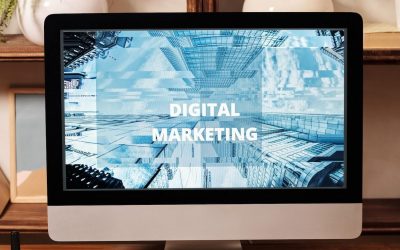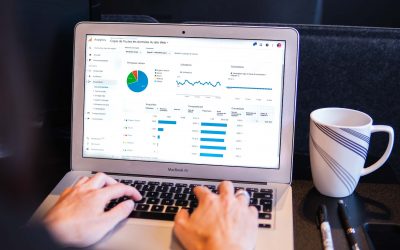
Most people who are new to digital marketing or internet marketing may have heard about pay-per-click advertising (PPC) but may not know much beyond the fact that you need to pay for every click.
However, there is much more to running paid advertising, and we have realized that PPC, especially on a platform like Google AdWords, requires much more than just being willing to pay.
In this article, we will dive into PPC advertising, what it is and how it works. We will also examine why businesses today should be investing considerable time in PPC in addition to organically making it to the top of the search engine results page.
What is Pay Per Click Advertising?
As mentioned earlier, PPC is an abbreviation for pay-per-click, is an advertising model used mainly by search engines like Google, Bing, and Yahoo. Advertisers pay a small fee each time the advertisement they are running is clicked.
Think of it as buying visitors to your site instead of trying to earn them organically by ranking the website for those keywords.
PPC happens to be one of the most common forms of advertising, especially in the form of search engine advertising, since it allows advertisers to pay for performance in the way of clicks. Advertisers can bid for where their ads are placed in search engine results when someone searches for a keyword related to their business.
For instance, if you’re running a car rental business in Florida, you’ll probably bid on a keyword like “car rental Florida.” Each time someone searches using this term, your ads will pop up on top of all the organic search results.
Each time the ad is clicked, it means a visitor was sent to your site, which is why you need to pay the search engine a fee. When PPC (pay per click) is set up correctly, the fee is trivial since the visit is often worth more than what you are paying for it.
In other words, if you make $200 per visitor, the $3 or $4 you pay per visitor is worth it. Some sites like those in the real estate industry, for instance, will pay more.
However, there is a lot more that goes into building a successful PPC campaign. It would be best if you researched the niche, choose the right keywords, organize those keywords into ad groups and campaigns, then set up a landing page that’s optimized for conversions.
Search engines like Google will reward advertisers who put in the effort to create relevant information by charging them less per click. If your landing pages and ads turn out to be useful to visitors, Google will charge you less, which means you have a much higher ROI.
That is why it is so important to learn how to do PPC right or hire a search marketing company to do it.
Why Should Businesses Use PPC Marketing?
If you are presently considering PPC or search ads as a marketing channel, it is important to know the benefits and why it is worth investing your budget here and not anywhere else.
Here are a couple of reasons why it is worth choosing PPC as an advertising channel:
You Receive Clicks from Search Engines ASAP
Once you have set up the ad account and an ad is created, the ads will then have to be approved by the platform. However, this can take a few hours. Once the ads are live, as long as you are eligible, the ads will start appearing.
Compared to other digital advertising and marketing platforms like SEO, PPC tends to show results much quicker, and that’s why it is one of the most popular forms of paid search.
PPC is Easy to Measure and Track
One of the major benefits of PPC over traditional advertising channels is that it is easy to measure and track returns. Just about all popular platforms like Bing Ads and Google Ads allow you to track conversions, including lead values and orders.
Advertisers can also zoom in to see all the stats at a granular level, so not only the ROI of the account but also each keyword.
The ability to use data and insights help to refine efficiency, which boosts the performance of a campaign over time.
Advertisers control When the Ads Run
You want to pause advertising during a busy period of the year temporarily. That’s as simple as clicking “pause” to halt the campaign. That way, you can choose to run the ads to generate fresh leads. We recommend building a strong campaign and not necessarily rely on stopping and starting campaigns.
What Is AdWords or Google Ads?
It is one of the most popular PPC advertising platforms in the world, followed closely by Facebook advertising perhaps. The platform is designed to help businesses create ads that appear when people search using its search engine.
Google is the biggest search engine on the planet, so for those who use AdWords, that’s an invaluable fact, making the platform so instrumental to being successful online.
Google Ads uses the PPC model, where users will bid on the keywords they want to pay for, which trigger their ads. Every time the search is initiated, Google will dig into the pool of its advertisers and choose a few ads, aka winners, that will appear for the search query.
The so-called winners are chosen based on various factors, including the relevance of their keywords and quality. In addition to how much they bid for the keyword.
Generally, who gets to appear is based on an Advertiser’s Rank or Ad Rank, as it is called. The Ad Rank is calculated by multiplying CPC (cost per click) Bid and their Quality Score.
The latter is a value that factors in the click-through rate, landing page quality, and relevance. That way, winning advertisers can reach their target audience at a budget-friendly price point. Think of it as a type of auction which is also used by paid Microsoft advertising.
Running pay per click (PPC) advertising using Google Ads is incredibly valuable since it receives a massive amount of traffic which means your ads receive the most impressions and consequently clicks. How often the ads appear will depend on the match types and the keywords you choose.
Even though the numbers will determine how successful the campaign is, you can also achieve a great deal by focusing on the following factors:
Keyword Relevance – Crafting a relevant list of keywords, proper ad text, and tight grouping to ensure that your keywords are super relevant.
Quality Score – The quality score is Google’s way of rating the relevancy of your keywords, PPC campaign, and landing pages. Higher quality scores mean that your ad will receive more clicks at a lower price.
Landing Page Quality – Your landing pages need to be optimized with relevant content and a persuasive call to action tailored to the search query.
Creativity – Your ad copy should be creative. Tools like Smart Ads Creator are free but can help you design quality ads for the display network.
Keyword Research for Running PPC Ads
Keyword research depending on your niche and industry can be time-consuming, but it is imperative to run a successful campaign.
PPC campaigns are built around keywords; successful Google Ads advertisers work to continuously grow and refine their word list, raising the overall clickthrough rate.
If you carry out keyword research only initially when creating a campaign, you could be losing out on hundreds of possibly valuable longtail keywords that are relevant yet cheap. That’s why keyword research, for the most part, is an ongoing process.
Hallmarks of successful keyword research for a PPC campaign include:
Relevancy – You don’t want to be paying for web traffic that isn’t relevant to your website. The goal should always be to drive targeted traffic, and that’s only possible with the right keyword choices.
Also, the right keywords mean higher click-through rates and increased ROI. In other words, the keywords you choose should be related closely to what you’re selling.
Exhaustive – Keyword research shouldn’t just include the most popular terms or the most frequently searched terms in your industry, but also longtail search.
Longtail keywords are far less common but more specific; even though they may have a low search volume, it adds up over time. Also, longtail keywords are far less expensive.
Expansive – PPC is an interactive advertising platform. That’s why it pays to constantly expand and refine your campaigns so that the keyword list is being consistently expanded.
Managing a PPC Campaign
Once you have created new campaigns, you will also want to manage them regularly to ensure that they are effective. In fact, regular activity is an excellent predictor of success.
You will have to continuously analyze performance for the account and make adjustments as follows:
Add PPC keywords – To expand the reach of a PPC campaign, you will need to continue adding keywords that are relevant to the business.
Negative keywords – You will also want to use so-called non-converting terms as negative keywords, which will help improve the campaign’s relevancy and reduce the amount wasted.
Split the Ad Groups – You will want to improve CTR and the quality score by splitting the campaigns and ad groups into smaller, more relevant ones. That will enable you to create ad text and matching landing pages that offer better conversions.
Review Expensive Keywords – You will want to thoroughly review under-performing keywords and then shut them off as soon as possible.
Refine the Landing Page – It is important to modify the call-to-action (CTA) and content of the landing page to align well with individual queries to boost overall conversion figures. You never want to send all the traffic to just one page, even if they are only shopping ads.
Conclusion
PPC campaigns may appear to be simple to set up and run by the looks of it. However, there is a lot that goes into building and fine-tuning a campaign for maximum ROI. That’s why many businesses turn to hire online marketing experts to set up and run campaigns for the business.
As a business owner hiring a professional company can help you save a lot of time while ensuring that your campaigns run smoothly and as expected. A company will handle everything from display advertising to ad auction and ad copy.
The latest posts from the blog:
What is Digital Marketing?
[seopress_breadcrumbs] What is Digital Marketing? Primarily digital marketing refers to marketing that includes the use of electronic devices for promotional messaging and measures. However, in practice, digital marketing campaigns are mainly run on the internet and...
read moreThe Fundamentals of Digital Marketing
[seopress_breadcrumbs] The Fundamentals of Digital Marketing The fundamentals of digital marketing happen to be quite a bit different from regular or traditional marketing fundamentals. Starting twenty years ago, marketing started taking a new direction with the...
read moreWhat is Paid Social Media Advertising?
[seopress_breadcrumbs] What is Paid Social Media Advertising? Paid social media advertising, as the term suggests, refers to social media ads. Unpaid or organic posts are ones that the social media platform's algorithm promotes based on a few dozen factors. However,...
read moreWhat is Social Media Marketing?
[seopress_breadcrumbs] What is Social Media Marketing? Over the past couple of years, we've all heard about presidential campaigns being run on social media and malicious companies harvesting people's data. While rare, these are stories that almost always make the...
read moreWhat’s the Best Social Media for Business?
[seopress_breadcrumbs] What's the Best Social Media for Business? Many business owners new to the world of social media advertising often ask which social media platform is best for business. The problem with answering this question is that there are half a dozen...
read moreHow Does PPC Work?
[seopress_breadcrumbs] One of the most important digital marketing goals is to get a site to rank high organically on a search engine results page (most likely Google) for the most high-volume keywords in the industry. However, SEO takes time, effort, and knowledge....
read moreABOUT ITONIC
A full-service digital marketing agency based in New York & London. Delivering world-class results to hit our revered clients. Hitting KPI's across Search, Social & Display.
Email: hello@iTonic.com
US: +1 646-583-0068
UK: +44 20 8638 0668
© iTONIC.COM 2024. All rights reserved
Subscribe to newsletter






